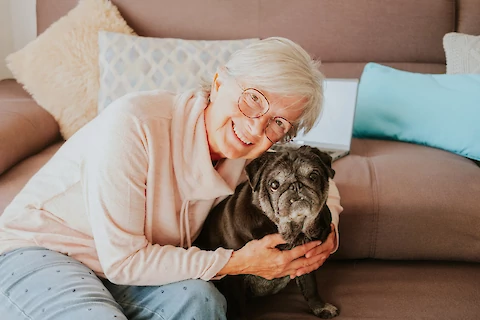
Pets can bring so much joy to seniors. They can also increase mental stimulation and physical activity, which may lead to better overall health. But pets also require a lot of responsibility. Pet owners must understand what items around the house can be toxic and how to keep their pets safe from them. This article will provide senior pet owners in the Jacksonville area with information about identifying and removing poisonous household items from homes.
Identifying Poisonous Household Items
There are several common and potentially hazardous items found in most homes. Pet owners should be aware of any:
- Cleaning supplies
- Paint-related compounds
- Certain plants (such as lilies and tulips)
- Medications intended for humans
- Products containing xylitol (often found in gum)
The signs of poisoning can vary depending on the type of toxin consumed. Symptoms may include:
- Vomiting
- Diarrhea
- Lethargy or lack of energy
They may also experience changes in behavior resulting from confusion and loss of concentration. In more severe cases, seizures can occur. In the worst cases, exposure to toxins may lead to death. If symptoms persist, pet owners should contact their veterinarian immediately.
Removing Poisonous Household Items
- Secure hazardous items. Once you've identified potential hazards, secure them in a location inaccessible to pets. This could mean putting medications in a locked cabinet, storing cleaning supplies on high shelves, or removing toxic plants from your home.
- Dispose of hazardous items safely. If you have any dangerous things you no longer need, dispose of them safely. Many communities have hazardous waste disposal facilities where you can drop off items like cleaning supplies, pesticides, and batteries.
- Consider pet-friendly alternatives. When shopping for household items, consider choosing pet-friendly options. For example, you could choose natural cleaning products instead of harsh chemicals or opt for non-toxic plants.
- Educate yourself. Educate yourself on the everyday household items that are toxic to pets. This can help you decide what to bring into your home and how to keep your new pet safe.
- Seek professional advice. If you aren't sure if an item in your home is safe for your pet, seek professional advice. Your veterinarian or a pet behavior specialist can help you determine what steps you need to take to keep your pet safe.
By following these tips, seniors can ensure their homes are safe for their new pets and minimize the risk of accidental poisoning.
We Can Help Make Your Home Safer for a Pet
Taking proactive steps to recognize and remove dangerous items from the home will go a long way toward keeping our furry family members content and safe.
If you are concerned your house might contain toxic substances or need help removing these items, please get in touch with Senior Helpers Jacksonville. We help seniors in Jacksonville, Jacksonville Beaches, Arlington, Ft. Caroline, San Marco, Southside, Mandarin, Fernandina Beach, Ponte Vedra, and the Yulee area. They can provide full-service in-home care support with trained caregivers. We can help individuals maintain healthy homes while also caring for their pets.